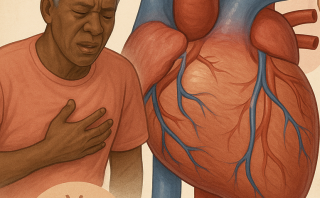
In this blog, you will get to know the relationship between obesity and health tech but you must first understand the definitions of ‘obesity’ and ‘health tech’ and how obesity impairs health.
What is health tech?
Health tech is the short form of healthcare technology. It refers to digital health which uses technology like databases, mobiles, telehealth, and wearables to improve the overall quality of health and the care provided.
What is obesity and how it is measured?
Obesity, the most widespread metabolic disease, is defined as abnormal or excessive fat accumulation which may deteriorate health. It’s identified by the metric, body mass index (BMI). BMI is calculated by dividing someone’s weight (in kilograms) by the square of their height (in meters). According to WHO, people with BMI greater than or equal to 30 are obese.
Main reasons behind obesity
· An increased intake of foods with high fat and sugar
· Increase in physical inactivity
Obesity occurs when there is an energy imbalance between calories intaken and calories burnt. (WHO)
Some facts on obesity
According to a report, from 1999 to 2000, US obesity frequency was 30.5%. However, from 2017-March 2020 it increased to 41.9%. According to a study published in the journal Obesity, 80% of US adults will be obese or pre-obese by 2030.
Obesity is a major risk for heart diseases, certain types of cancer (endometrial, breast, ovarian, prostate, liver, gallbladder, kidney, and colon), type 2 diabetes, stroke, musculoskeletal disorders and others, which cause premature death. (Centers for Disease Control and Prevention)
How health tech can impact obesity?
Health tech has been a boon for the patients during the Covid-19 pandemic. Like several health conditions, health tech has been equally beneficial for people dealing with obesity. A survey, included in the paper in the journal ‘Obesity’, validates that socioeconomically challenged patients and patients who are at greater risk for cardiovascular diseases displayed greater weight loss by using health tech. Health tech in the form of websites, mobile phone applications, social networking sites, wearable devices, e-scales, SMS texts, personal digital assistants, interactive voice response technology, exergaming, etc helps to combat obesity.
Different ways in which health tech can reduce obesity (The Medical Futurist)
1. Fitness trackers: These are a type of wearable computer in the form of watches, bands, rings, earbuds, chest straps, etc. Fitness trackers act as personal trainers which offer valuable tips and tricks to improve the exercises, they even measure vital signs. Thus, these are of great help to reduce obesity.
2. Sleep trackers: Without adequate rest and a good night’s sleep people tend to gain weight and become less energized. Sleep trackers provide valuable information on rapid eye movement (REM), light sleep and deep sleep phases and help to improve the duration and quality of sleep, thus, in turn decreasing the chance of obesity.
3. Mental health tech: Poor mental health affects metabolism, therefore losing weight becomes harder. With the help of mental health apps, people’s mental health can easily be monitored and improved.
4. Smart scales: Weight, BMI, body fat percentage, muscle mass, fat mass, etc can be monitored by smart scales to help people monitor their progress towards achieving the goal of losing weight.
5. Food scanners: By scanning the components and counting the calories of foods, food scanners significantly help obese people to lose weight.
Apart from these, health tech helps people fight obesity via weight loss or Bariatric surgery procedures. Bariatric surgery is considered to be the most effective method for long-term weight loss. Nowadays, ‘Robotic Bariatric Surgery’ is performed when diet and exercise have failed to provide necessary ‘weight loss’ results. This surgery uses laparoscopic or robotic technology. (Times Now News)
Conclusion
Technology has become an intrinsic part of our lives. Although it doesn’t always improve our quality of life, using it effectively can help us fight several health conditions like obesity. Maintaining a healthy body via weight loss requires a lifetime commitment to a healthy lifestyle which requires the guidance of health tech. Unlike people suffering from other health conditions, obese people benefit from remote communications. Professional medical supervision, self-monitoring, tracking of diet, exercise, sleep, etc, in cases of people suffering from obesity, are possible via health tech. Adoption of technology such as mobile health, eHealth, telehealth, and telemedicine are effective and have become prevalent in obesity management. With the continual advancement of technologies in the hands of skilled researchers, it’s evident that health tech will soon become an asset and play a greater role in obesity management and intervention. We can easily imagine a world free of obesity with the possible amalgamation between physical activity and technology.
